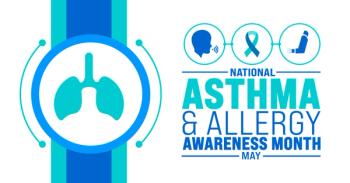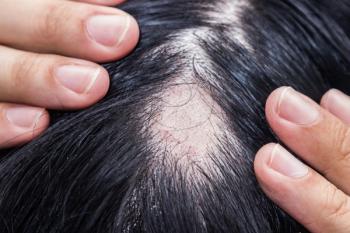
Over 500,000 US patients hospitalized with nonsevere COVID-19 saw no clinically significant benefit and potential harm associated with routine early antibiotic treatment, supporting antibiotic stewardship to limit unnecessary use.

Cameron Santoro is an associate editor for The American Journal of Managed Care® (AJMC®), AJMC.com, and The Center for Biosimilars®.

Over 500,000 US patients hospitalized with nonsevere COVID-19 saw no clinically significant benefit and potential harm associated with routine early antibiotic treatment, supporting antibiotic stewardship to limit unnecessary use.

The FDA cleared marketing for the first in vitro diagnostic device that tests blood to aid in diagnosing Alzheimer disease.

Meaningful transformation in health care requires ongoing, collaborative efforts, explained Eboni Price-Haywood, MD, MPH, MMM, Xavier Ochsner College of Medicine; and Toni Flowers, PhD, DHL, MBA, LCMC Health.

Jessica Horwitz, MPH, FNP-C, emphasizes the importance of accessible preventive care and health education, the interconnectedness of mental and physical well-being, and the need for women, providers, and policymakers to prioritize comprehensive and depoliticized women's health care.

Jessica Horwitz, MPH, FNP-C, highlighted the crucial need for public health professionals and health care providers to address the intersectionality of women's health by acknowledging diverse experiences and ensuring equitable, coordinated care that goes beyond physical health.

Jessica Horwitz, MPH, FNP-C, advocated leveraging Women's Health Week to promote comprehensive and depoliticized women's health care, destigmatizing pelvic floor health, and integrating mental health into primary care.

Eboni Price-Haywood, MD, MPH, MMM, Xavier Ochsner College of Medicine, and Toni Flowers, PhD, DHL, MBA, LCMC Health, advocate for understanding individual patient circumstances, ultimately leading to more comprehensive and effective outcomes.

A newly developed Naples Pediatric Food Allergy grading scale, incorporating clinical history and examination, shows promise in streamlining the diagnosis of food allergies in children, potentially reducing delays and health care burdens.

Despite similar scores on an aggression risk evaluation tool in a pediatric emergency department, Black youths were significantly more likely to be labeled with a high aggression risk behavioral health flag in their electronic health records compared with White youths.

The Trump administration's termination of 694 NIH grants totaled $1.81 billion by April 2025, generating significant uncertainty and concern regarding the future of US health research, especially for minority populations.

There are significant environmental impacts of dermatological practices that call for interdisciplinary collaboration and policy changes to promote sustainability and reduce carbon emissions within the field.

Patients with moderate to severe chronic spontaneous urticaria that were antihistamine-resistant to omalizumab experienced improvements with rilzabrutinib.

During National Asthma and Allergy Awareness Month, the high prevalence and costs of allergies and asthma in the US are evident, alongside disparities in treatment access and the potential impact of recent policy changes on environmental and public health efforts.

Significant unmet needs were found among high-quality validation studies on the internal structure of patient-reported outcome measures (PROMs) specific to alopecia areata (AA), a common hair loss condition with substantial quality of life impacts.

Urticaria is complicated to diagnose by its symptomatic overlap with other skin conditions and the frequent misclassification in literature of distinct pathologies like vasculitic urticaria and bullous pemphigus.

Dermatology providers reported strong impacts on the work and home life of patients with moderate to severe chronic hand eczema, a manifestation of atopic dermatitis.

Marking the first approval in over a decade for this challenging condition, the FDA has approved dupilumab (Dupixent) to treat chronic spontaneous urticaria in patients 12 years and older whose hives and itching remain uncontrolled by antihistamines.

There have been new developments in treatments for chronic spontaneous urticaria, with several options showing complete response in patients, particularly among those who are difficult to treat.

Raj Chovatiya, MD, PhD, MSCI, highlights the long-term effectiveness of lebrikizumab across diverse patients, including those with prior biologic use, positioning it as a potential first-line treatment for moderate to severe atopic dermatitis.

Patients with chronic spontaneous urticaria experienced a long delay in diagnosis, a substantial impact on their quality of life, and often received inadequate treatment, highlighting the need for better management and understanding of the condition.

Pediatric patients with prior SARS-CoV-2 infection had a higher risk of adverse postacute kidney outcomes, such as new-onset chronic kidney disease (CKD) and declining kidney function, if they had preexisting CKD or acute kidney injury.

With deadlines looming in 2026 and 2027 for compliance with the CMS Advancing Interoperability and Improving Prior Authorization Final Rule, a survey indicates a concerning lack of readiness among payers and providers to meet the new requirements for data sharing.

Raj Chovatiya, MD, PhD, MSCI, highlights promising research in atopic dermatitis focused on identifying patient subgroups for targeted treatments and achieving long-term remission.

US migrant populations experience various dermatologic conditions linked to exposures before, during, and after migration, often exacerbated by barriers to accessing health care.

Research presented at the 2025 Academy of Managed Care Pharmacy annual meeting analyzed real-world treatment outcomes for dermatologic conditions, specifically highlighting the efficacy of ruxolitinib cream for atopic dermatitis and the potential for phototherapy to delay costly biologic initiation.

The long-term safety and efficacy of treatments for allergy and inflammatory conditions was highlighted at the 2025 American Academy of Allergy, Asthma & Immunology/World Allergy Organization Joint Congress.

National Infertility Awareness Week highlights that infertility impacts both men and women, is more prevalent among Black and Hispanic/Latina women, is not caused by contraceptives, and becomes more challenging to address with time.

Accessing equitable health care is an ongoing struggle in the US for minority communities due to historical pretexts with new setbacks surfacing as recent administrative changes emerge, highlighting the urgent need for continued advocacy during National Minority Health Month.

Hispanic and Latino adults found that while preserving cultural identity may initially benefit health, socioeconomic factors like education level significantly impact diabetes and hypertension rates, highlighting the need for targeted health interventions across diverse subgroups.

Crystal Aguh, MD, FAAD, Johns Hopkins School of Medicine faculty, highlights the critical need for comprehensive education on hair loss across diverse hair types, stressing the importance of understanding inflammatory pathways for developing targeted therapies.

259 Prospect Plains Rd, Bldg H
Cranbury, NJ 08512
© 2025 MJH Life Sciences®
All rights reserved.
